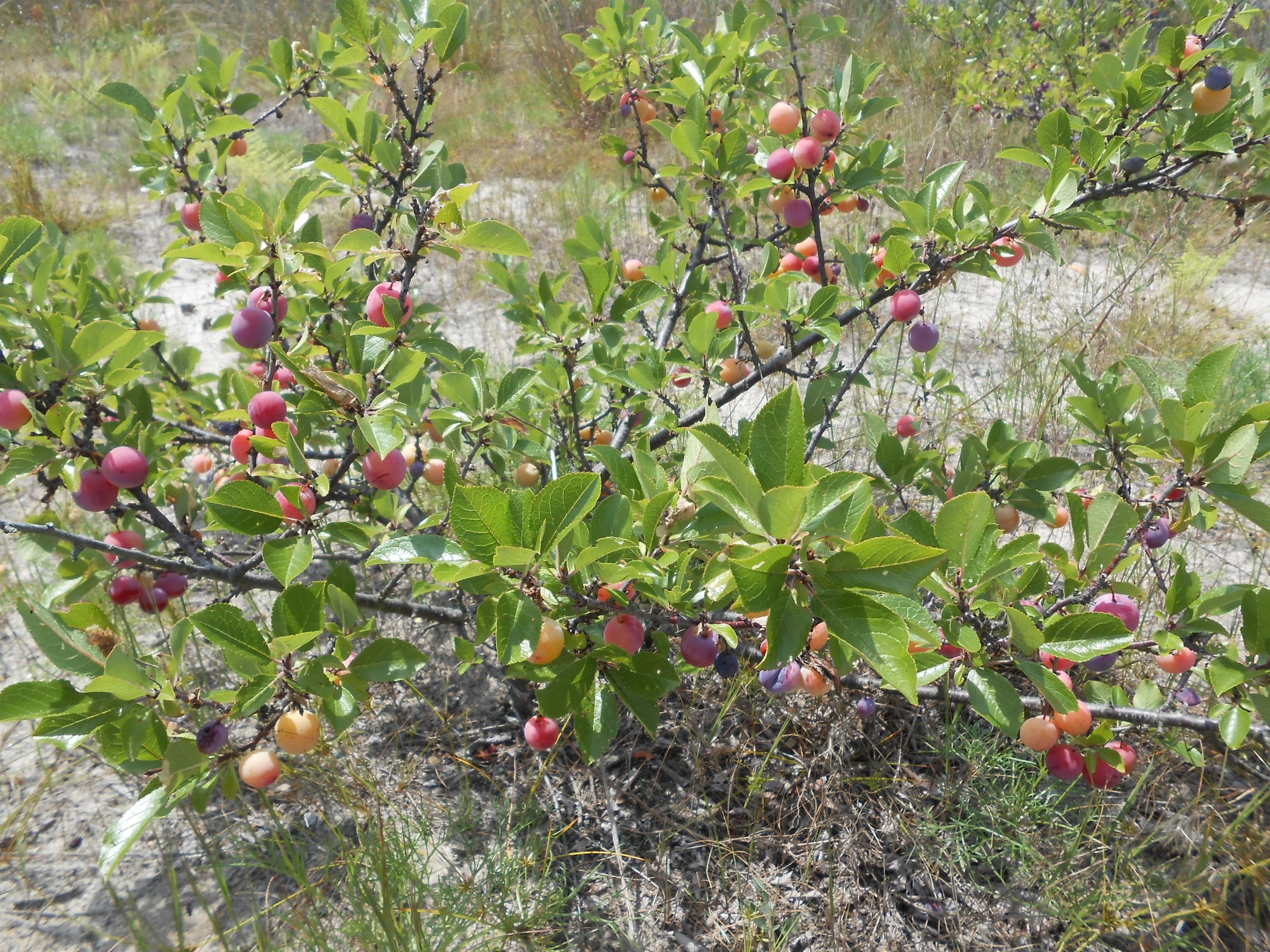SNew Jersey’s beach plums (Prunus maritima) are a small, hardy shrub that grows along the state’s coastal dunes and barrier islands. These plums are a unique and important part of New Jersey’s coastal ecosystem, as well as an important cultural and culinary resource for local communities.
Beach plums are small shrubs that typically grow to be around 6 feet tall. They have dark green leaves and produce fragrant, white flowers in the spring. In the late summer and early fall, the shrubs produce small, red plums that are about the size of a cherry.
These plums are usually tart and astringent when eaten fresh, but they are commonly used to make jams, jellies, and sauces.
Beach plums are well adapted to the harsh conditions of the coastal dunes, where they play an important role in stabilizing the sand and preventing erosion. The deep roots of the plants help to anchor the sand in place, and the foliage provides shade and shelter for other plants and animals. In addition, the flowers of the beach plum provide an important source of nectar for bees and other pollinators.
Beach plums have a long history in New Jersey, dating back to the Native American communities who lived along the coast. These communities would harvest the plums and use them for food and medicine. In the 19th century, the plums became popular with early settlers, who would make preserves and other products from the fruit.
Today, beach plums are still an important part of New Jersey’s cultural and culinary heritage. Local farmers and producers use the fruit to make a variety of products, including jams, jellies, sauces, and even wine. The annual Beach Plum Festival, held in Cape May County, celebrates the fruit with food, music, and crafts. There’s also an annual Beach Plum Festival held at Island Beach State Park.
You can grow beach plums in your New Jersey garden. They prefer full sun and sandy soils with good drainage, similar to their native habitat along the shore.
